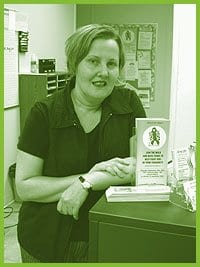The AIDS Committee of Ottawa (ACO) is heading in a new streamlined direction, dealing with specific areas rather than trying to do everything.
The organization has released a strategic plan for the next three years, hired an interim executive director and elected five new board members.
ACO’s new strategy includes a focus on people living with HIV/AIDS and advocacy work on their behalf, partnerships with other local service providers and organizational stability. The organization had previously indicated it would move away from prevention programs.
“The intention is to focus ACO on its areas of strength in the past, and to focus in, as well, on areas that are seen as priorities by people living with HIV/AIDS themselves,” says interim board chair Gareth Park.
“The AIDS Committee of Ottawa has traditionally had a mandate to engage in a broad range of activities and the feeling was that we had too many demands, or too many things we were supposed to be doing and therefore we were not able to do them as well as we would like,” says Park.
“By focussing in on a couple of areas, we hope that that will allow us to build up a strength and expertise and trust from the community in those areas,” says Park.
The plan also includes new vision and mission statements as well as a statement of values. The Living Room – which offers a meeting place and various services – will be central to ACO’s streamlined approach.
Park says the model they arrived at has received “general support” from clients and the broader community.
“[I say] general support because we only have been able to sketch out a broad outline of where the agency should be and that was the purpose of the strategic plan – and obviously people would like more detail,” says Park.
Figuring out how the organization moves toward this new goal is the next step, says Park, and he admits “all bets are off” in terms of funding expectations for the organization.
In early June, Kathleen Cummings assumed the position of transition manager and executive director of ACO. She has been hired for an 18-month term to guide implementation of the plan.
Cummings worked in the downtown east side of Vancouver for 16 years in various community organizations dealing with issues related to Hepatitis B and HIV. She also holds a degree in psychology and women’s studies but these aren’t the credentials she values most.
“The thing that drives me most – my passion – is that I have been a service user myself. I was on the streets in Vancouver, using drugs,” says Cummings. “I just think it’s always important to recognize that that experience, which is often undervalued, is actually my most important experience, because it keeps me really client-centred.”
Cummings says she also brings to ACO her experience of working through change in other organizations.
“I’ve been thrown in the deep end at some organizations not knowing that they were in crisis and then, through that process, realized that I actually enjoy that challenge,” says Cummings. “I think my strongest skill is I really believe that no one person and no one organization can do it alone. You’ve got to do it in partnership.”
Cummings says the challenges at ACO are no more and no less than she had expected. What she hadn’t expected was the support she has received – from co-workers, clients and the broader community – and she considers herself lucky to be working in this community.
“In environments where there is lots of change going on I think that some people can be distrustful,” says Cummings, but notes that hasn’t been her experience so far.
Newly elected to ACO’s board of directors are Reginald Dennis, John Morgan, Tony Rogerson, Rob Sampson and Randolf Shannon.
They filled the vacancies of departing board members Jean Lamoureux, George Hartsgrove, Brad Buxton, Lyle Borden and Jodie Brown.

 Why you can trust Xtra
Why you can trust Xtra


